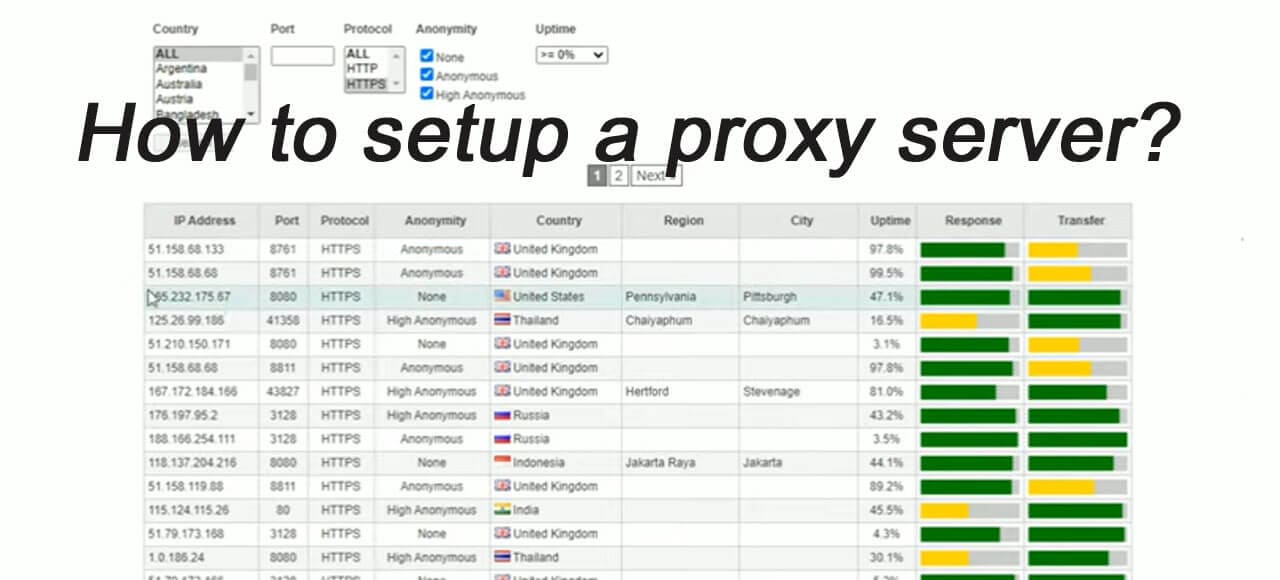Within today's online age, web users are often confronted with the challenge of maintaining their online privacy and security. As an increasing number of people connect to the internet, the threat of bandwidth throttling and unauthorized data access grows. This is where proxies come into play, offering a remedy that helps users navigate the complexities of the internet while safeguarding their privacy and improving their online experience.
Proxies act as intermediaries between users and the web, providing a layer of anonymity and protection by masking IP addresses and controlling traffic. Whether you're looking to stream your beloved shows, access region-locked content, or simply enhance your online security, understanding how proxy servers work and their potential benefits is essential. In Learn more , we will investigate various aspects of proxy servers, including their distinctions from VPNs, the protection elements they offer, and the ethical considerations surrounding their utilization. Accompany us as we explore the world of proxy servers and discover how they can help you escape bandwidth throttling while maximizing your online capabilities.
Grasping Proxy Servers and Their Functions
Proxies act as intermediaries between your device and the internet. When you link to a proxy server, your inquiries for sites and internet services are primarily forwarded to the proxy. The proxy then forwards those requests to the desired site, acquires the information, and delivers it back to you. This procedure effectively masks your IP address, providing a layer of anonymity while navigating the web.
There are various types of proxy servers, each serving distinct purposes. HTTP proxies are mainly employed for web traffic, while SOCKS proxies can handle multiple types of data, including emails and file transfers. Transparent proxies do not change your requests, while others, such as very private proxies, mask your identity more effectively. Grasping the distinctions among these types can guide you select the best proxy for your requirements.
Utilizing a proxy server not only enhances confidentiality but can also strengthen protection. By sending your data through a proxy, your data is less likely to be caught by hackers. Additionally, certain proxies come with functions like data encryption, further shielding your information. Using these servers can be a tactical move for people and businesses looking to protect their web activities.
Benefits of Using Proxy Servers
Using proxy servers delivers various advantages for both users and organizations. A primary among the primary benefits is enhanced online privacy. By routing your internet traffic through a proxy, your true IP address is masked, which makes it hard for websites and online services to trace your activities to you. This extra layer of security is essential for individuals who wish to surf the internet without being monitored by advertisers or other third parties.
Another significant benefit is better online security. Proxy servers can function as an intermediary between the user and the internet, blocking malicious content and blocking access to harmful websites. This protection is essential for businesses that want to safeguard sensitive information and ensure their employees operate in a protected online environment. Utilizing proxies also allows for the application of security measures like access control and content filtering, which can help create a safe network.
Furthermore, proxy servers can enhance the overall navigating experience. They have the capability to save web pages and content, leading to quicker load times for frequently visited websites. This is particularly beneficial for companies that rely on productivity, as employees can access necessary resources quickly. Additionally, proxies enable users to overcome geographic restrictions and access blocked content, turning them into an essential tool for anyone looking to explore the internet without barriers.
Proxy Services for Internet Privacy and Protection
Proxy services play a important role in enhancing internet privacy and safety by functioning as intermediaries between individuals and the web. When a person connects to a server, their internet queries are routed through the proxy, hiding their true IP address. This disguise helps stop websites and internet platforms from monitoring user behavior, which is increasingly important in an age where information privacy is a major concern. Moreover, proxy servers can screen and deny harmful content, furthermore safeguarding individuals from potential dangers.
One of the main advantages of using proxy services for protection is their capability to secure information sent between the individual and the server. This security helps safeguard confidential information from being captured by hackers or other harmful actors. By employing secure proxy servers, individuals can safeguard their internet transactions, interactions, and private information, making it significantly more difficult for cybercriminals to take advantage of weaknesses. This is especially important for companies that process sensitive information, as proxy servers provide an additional layer of defense against data leaks.
Furthermore, proxy services can help individuals obtain region-locked content while maintaining privacy. Many web ISPs and broadcasting services monitor user locations and can enforce regional restrictions. By using a proxy service located in a different area, users can evade these restrictions without revealing their real IP locations. This capability enables users to enjoy a broader range of material while keeping their internet activities private and protected, ensuring a more secure surfing experience overall.

